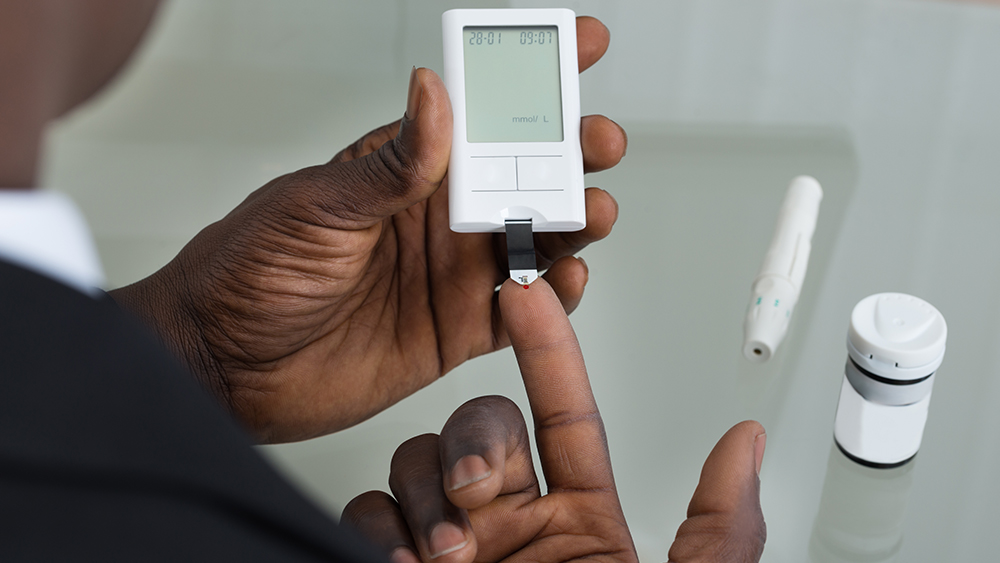
Researchers have discovered how SARS-CoV-2 can cause type 1 diabetes, along with potential ways to prevent the condition from developing.

Researchers have discovered how SARS-CoV-2 can cause type 1 diabetes, along with potential ways to prevent the condition from developing.
What you need to know
People who have type 1 diabetes don’t make insulin, a hormone that breaks down glucose from food. They require daily shots of insulin to control glucose, also known as blood sugar. While type 1 diabetes can be managed, it cannot be cured.
Recent studies have found that people who don’t already have type 1 diabetes can develop it after an acute COVID-19 infection. Two studies — both conducted in part at the National Human Genome Research Institute — found out how SARS-CoV-2 could cause diabetes.
How does SARS-CoV-2 infect the pancreas?
SARS-CoV-2 can interact with several proteins on the surface of cells in the body, allowing the virus to gain access to the cell. But those proteins are present in different levels for different cells. Researchers discovered that beta cells — the cells that make insulin in the pancreas — have a higher level of one of those proteins, neuropilin, than other pancreatic cells.
After looking at autopsy samples from people who died of COVID-19, the researchers confirmed that SARS-CoV-2 seemed to target beta cells more than other pancreatic cells. When SARS-CoV-2 was blocked from interacting with neuropilin, the virus was unable to infect the beta cells. Blocking that interaction could prevent people with COVID-19 from developing diabetes.
How does COVID-19 cause diabetes?
In one study, researchers examined lab-grown beta cells infected with COVID-19 and found that they made less insulin when infected with the virus. Some of the cells died outright.
In the other study, researchers found that infection effectively reprogrammed some of those lab-grown cells. Instead of producing insulin, which breaks down blood sugar, they started producing glucagon, which increases blood sugar. The scientists then tested almost 400 drugs approved by the U.S. Food and Drug Administration to see if one might prevent the reprogramming. They zeroed in on a chemical called trans-ISRIB, which prevented reprogramming but not infection.
SARS-CoV-2 can cause type 1 diabetes by killing beta cells, making them less productive, and reprogramming them. The two studies also suggest different ways to prevent COVID-19–related diabetes from developing.
Why is this research important?
Understanding how SARS-CoV-2 causes type 1 diabetes can help researchers find methods to prevent the disease from developing in people with COVID-19.
Where can I go to learn more?
How COVID-19 Can Lead to Diabetes
- NIH Director Dr. Francis Collins goes over recent studies that confirm SARS-CoV-2’s ability to impair insulin-producing cells.
- The National Institute of Diabetes and Digestive and Kidney Diseases shares information about type 1 diabetes.
Bringing Needed Structure to COVID-19 Drug Development
- Dr. Collins explains how SARS-CoV-2 gains access to cells.
Sources
Tang, X., Uhl, S., Zhang, T., Xue, D., Li, B., Vandana, J. J., Acklin, J. A., Bonnycastle, L. L., Narisu, N., Erdos, M. R., Bram, Y., Chandar, V., Chong, A., Lacko, L. A., Min, Z., Lim, J. K., Borczuk, A. C., Xiang, J., Naji, A., Collins, F. S., … Chen, S. (2021). SARS-CoV-2 infection induces beta cell transdifferentiation. Cell Metabolism, 33(8), 1577–1591. https://doi.org/10.1016/j.cmet.2021.05.015
Wu, C. T., Lidsky, P. V., Xiao, Y., Lee, I. T., Cheng, R., Nakayama, T., Jiang, S., Demeter, J., Bevacqua, R. J., Chang, C. A., Whitener, R. L., Stalder, A. K., Zhu, B., Chen, H., Goltsev, Y., Tzankov, A., Nayak, J. V., Nolan, G. P., Matter, M. S., Andino, R., & Jackson, P. K. (2021). SARS-CoV-2 infects human pancreatic β cells and elicits β cell impairment. Cell Metabolism, 33(8), 1565–1576.e5. https://doi.org/10.1016/j.cmet.2021.05.013

News and Stories
Read stories about the efforts underway to prevent, detect, and treat COVID-19 and its effects on our health.
 An official website of the United States government
An official website of the United States government

